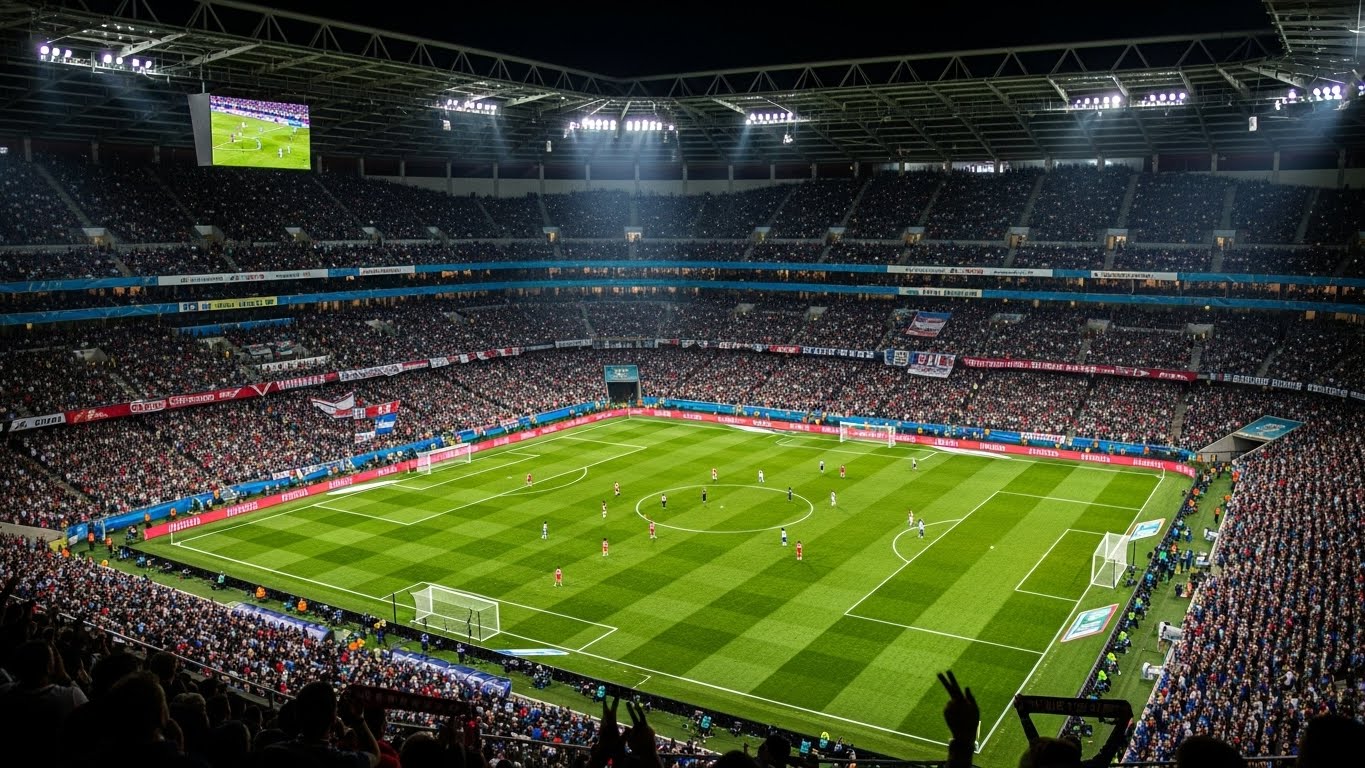Sports are more than just games played on fields, courts, or tracks; they are an essential part of human culture, identity, and history. From the ancient Olympic Games in Greece to modern global sporting events like the FIFA World Cup, sports have always been a way for people to connect, compete, and express themselves. This article delves into the fascinating world of sports, exploring its history, benefits, types, influence on society, and why it continues to captivate millions worldwide.
The Historical Significance of Sports
Sports have been an integral part of human society for thousands of years. The earliest records of organized sports date back to ancient civilizations such as Egypt, Mesopotamia, and Greece. In these societies, sports were not only a form of entertainment but also a means of preparing young men for warfare and developing physical and mental discipline. The Greeks, in particular, revered athletic competition. The ancient Olympic Games, first held in 776 BC, were a celebration of strength, skill, and endurance, and participants were honored as heroes in their communities.
Similarly, in China, martial arts and traditional games played significant roles in social and military training. Indigenous communities across the Americas and Africa also developed unique sports that reflected their environment, culture, and values. From lacrosse to wrestling, these games were more than pastimes—they were rituals that fostered unity, competition, and cultural identity.
Types of Sports
Sports can be broadly categorized into several types, each with unique characteristics, rules, and objectives. Understanding these categories helps us appreciate the diversity and complexity of athletic activities.
1. Team Sports
Team sports are games where individuals collaborate to achieve a common objective, usually scoring points against an opposing team. Popular team sports include soccer, basketball, cricket, hockey, and volleyball. The essence of team sports lies in coordination, strategy, and collective effort. These sports teach individuals essential life skills such as communication, leadership, and resilience. Team sports also foster a sense of community and belonging, as players work together toward a shared goal.
2. Individual Sports
Individual sports focus on personal performance, with athletes competing against one another or the clock. Track and field, swimming, gymnastics, tennis, and golf fall under this category. Success in individual sports requires discipline, focus, and self-motivation, as the athlete bears the responsibility for their performance. These sports highlight the human spirit’s capacity to push limits and achieve excellence.
3. Adventure and Extreme Sports
Adventure sports, often termed extreme sports, involve higher levels of risk and adrenaline. Activities like rock climbing, skydiving, snowboarding, and surfing are popular among thrill-seekers. These sports test not only physical strength but also courage, mental fortitude, and quick decision-making. Extreme sports have gained significant popularity in recent years, with media coverage and competitions drawing attention to the skills and risks involved.
4. Combat Sports
Combat sports focus on one-on-one competition where skill, technique, and strategy are crucial. Boxing, wrestling, judo, karate, taekwondo, and mixed martial arts are examples of this category. These sports require a combination of strength, speed, agility, and tactical intelligence. Beyond physical prowess, combat sports emphasize discipline, respect for opponents, and mental resilience.
5. Recreational Sports
Recreational sports are played primarily for fun, fitness, and social interaction rather than competition. Activities like jogging, cycling, badminton, and yoga fall into this category. These sports are essential for maintaining physical health, mental well-being, and social connections. Recreational sports are accessible to people of all ages and skill levels, encouraging lifelong participation in physical activity.
Physical Benefits of Sports
Engaging in sports provides numerous physical benefits that are crucial for maintaining overall health. Regular participation improves cardiovascular fitness, strengthens muscles, enhances flexibility, and boosts coordination. Athletes often develop better endurance, agility, and balance, which are vital for daily activities and injury prevention.
Sports also play a significant role in managing weight and reducing the risk of chronic illnesses such as heart disease, diabetes, and hypertension. Physical activity stimulates metabolism, increases energy levels, and promotes better sleep. For children and adolescents, sports are especially important for growth and development, helping establish healthy habits early in life.
Mental and Emotional Benefits of Sports
While the physical advantages of sports are widely recognized, the mental and emotional benefits are equally profound. Participation in sports can significantly reduce stress, anxiety, and depression. Physical activity triggers the release of endorphins, chemicals in the brain that create feelings of happiness and well-being.
Sports also enhance cognitive abilities such as concentration, problem-solving, and decision-making. Team sports, in particular, promote emotional intelligence, empathy, and communication skills. Athletes learn to manage both success and failure, developing resilience and mental toughness that translate into other areas of life.
Social and Cultural Impact of Sports
Sports have a profound influence on society and culture. They bring people together, transcending barriers of language, religion, and nationality. Global events like the Olympics, World Cup, and Wimbledon showcase human talent while fostering unity and mutual respect among nations.
In many cultures, sports play a vital role in shaping identity and social norms. Athletes often become role models, inspiring younger generations to pursue their dreams and maintain a healthy lifestyle. Community sports programs also create opportunities for social engagement, teamwork, and mentorship, contributing to stronger, more connected communities.
Sports and Economic Significance
Sports have a massive economic impact worldwide. Professional leagues, tournaments, and events generate significant revenue through ticket sales, sponsorships, broadcasting rights, and merchandising. Major sporting events can boost tourism, create jobs, and stimulate local economies.
Moreover, sports-related industries, such as fitness equipment, apparel, nutrition, and sports medicine, contribute to economic growth. The professionalization of sports has turned talented athletes into global celebrities, and the commercialization of sports has opened new avenues for entrepreneurship, marketing, and media.
Women in Sports
The role of women in sports has evolved dramatically over the past century. Historically, women faced numerous barriers, from social stigma to restricted opportunities in competitive sports. However, trailblazing athletes and advocacy for gender equality have reshaped the landscape. Today, women compete at the highest levels, achieving remarkable success in soccer, tennis, athletics, cricket, and countless other sports.
Promoting women’s participation in sports is essential not only for equality but also for encouraging health, empowerment, and representation. Female athletes inspire millions worldwide and challenge stereotypes about gender roles in society.
Youth and Sports Development
Youth involvement in sports is critical for personal and social development. Sports teach young people essential life skills, including discipline, time management, teamwork, and leadership. Participating in sports from an early age helps children develop confidence, resilience, and a sense of responsibility.
Schools, community centers, and sports academies play a crucial role in nurturing talent and providing safe, structured environments for young athletes. Encouraging youth participation in sports also promotes healthy lifestyles, reducing the risk of obesity and associated health problems.
The Psychology of Sports
Sports psychology is a growing field that examines how mental factors influence performance and how participation in sports impacts mental well-being. Athletes often face intense pressure, high expectations, and the need for focus under stress. Sports psychology techniques, such as visualization, goal-setting, relaxation exercises, and cognitive restructuring, help athletes enhance performance and maintain mental health.
Understanding the psychological aspects of sports also benefits coaches, trainers, and recreational participants by providing insights into motivation, teamwork, and mental resilience.
Technology and Innovation in Sports
Technology has revolutionized sports in recent years, enhancing performance, training, and fan engagement. Wearable devices, fitness trackers, and performance analytics allow athletes to monitor and optimize their physical condition. Advanced equipment and materials improve safety, efficiency, and competitiveness.
Broadcasting innovations, virtual reality, and digital platforms have transformed how fans experience sports. Spectators can now enjoy immersive experiences, live statistics, and interactive content, making sports more accessible and engaging worldwide. Additionally, technology has increased transparency and fairness through innovations like instant replay and goal-line technology.
The Future of Sports
The future of sports promises exciting developments, from new forms of competition to increased inclusivity and sustainability. Emerging sports, e-sports, and adaptive sports for individuals with disabilities are gaining recognition, broadening the definition of athletic competition.
Sustainability is becoming a priority, with eco-friendly stadiums, responsible event management, and initiatives to reduce environmental impact. Furthermore, global collaboration and innovation continue to make sports more accessible, safe, and inspiring for everyone, ensuring that the human love for competition and physical activity thrives for generations to come.
Conclusion
Sports are much more than physical contests; they are a reflection of human spirit, culture, and ambition. They inspire, challenge, and connect us across boundaries, shaping identities, communities, and nations. From the thrill of victory to the lessons learned in defeat, sports teach resilience, discipline, and teamwork. They are a universal language, a source of joy, and a platform for personal and social growth.
Whether played professionally or recreationally, sports hold the power to transform lives, promote health, and bring the world closer together. In embracing sports, we celebrate the potential of the human body, the ingenuity of the human mind, and the enduring desire to strive, compete, and excel.



